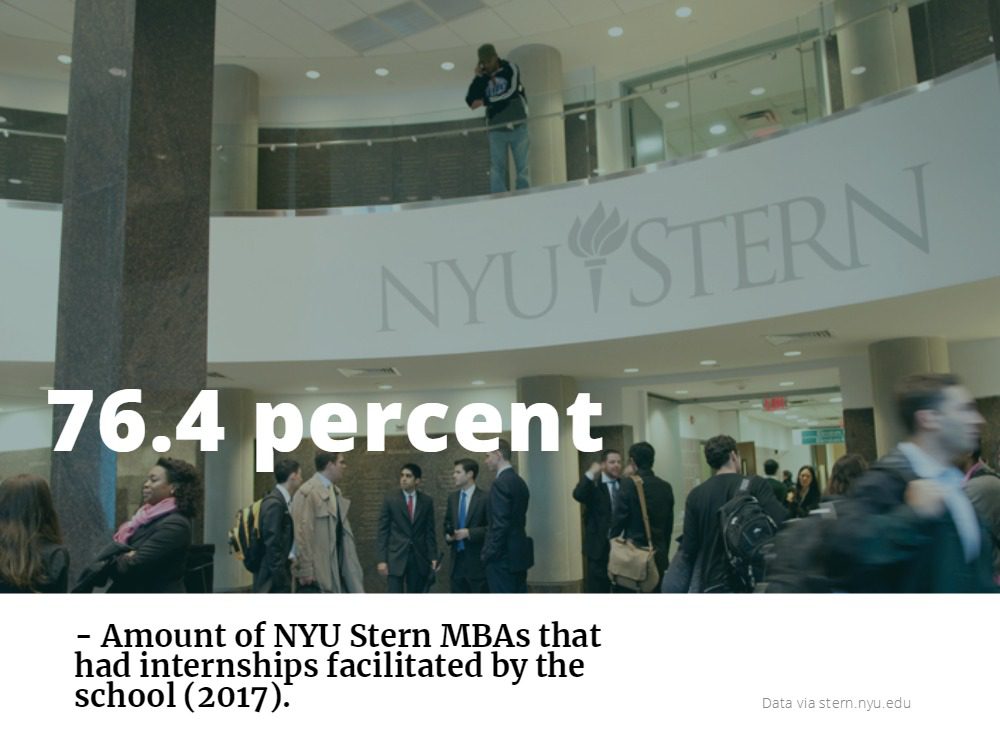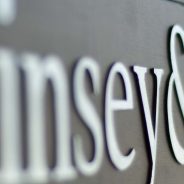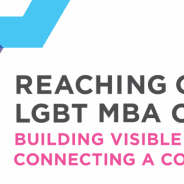Search results for :
How To Get a Job with Google
As one of the most recognizable and powerful tech companies in world, Google has always prioritized bringing in fresh, new talent and hiring the best and brightest MBAs to help lead the next era of innovation at the company. Continue reading…
Facebook COO Sheryl Sandberg Arrives at MIT, and More – Boston News
What’s happening at the best Boston business schools this week?
Asia Is Ripe For Investments. Here’s How U.S. Companies Can Capitalize – D’Amore-McKim Blog
The Northeastern University D’Amore-McKim School of Business recently published an overview of the recent Emerging Markets’ Symposium, in which Ravi Ramamurti, University Distinguished Professor of international business and strategy brought together seven CEOs and corporate executives to unpack the discussion topic, “On the Rise of Asia: How Should U.S. Companies Respond.”
Jimmy Weng, DMSB’07, and Credit Suisse’s current head of offshore investment strategies, told the audience via conference call that he believed “Asia’s economy is entering a “supercycle” of market boom.”
Symposium organizer Ramamurti said, “China is leading the way to a new era in globalization. The headroom for growth in Asia is very significant.”
You can read more about the symposium here.
Sheryl Sandberg On Facebook’s Missteps and What Comes Next – MIT Sloan Newsroom
Facebook COO Sheryl Sandberg delivered MIT’s 2018 commencement address last week and used her speech as an opportunity to come clean and share the lessons learned from her company’s recent Cambridge Analytica data mining imbroglio.
She told the audience, “It’s painful when you miss something — when you make the mistake of believing so much in the good you are seeing that you don’t see the bad. It’s hard when you know that you let people down.”

Sandberg speaking at the 2018 MIT commencement / Photo via Dominick Reuter
“The larger challenge is one all of us here today must face. The role of technology in our lives is growing — and that means our relationship with technology is changing. We have to change, too. We have to recognize the full weight of our responsibilities.”
You can read more Sandberg’s commencement speech and check out footage of the event here.
A Big Problem with Big Problems – Questrom Blog
Boston University Questrom School of Business associate professors Stine Grodal and Siobhan O’Mahony recently published a new study that explores how “competing and misaligned goals—combined with a lack of oversight—can derail an ambitious vision.”
In their paper “How does a Grand Challenge Become Displaced? Explaining the Duality of Field Mobilization,” Grodal explains how common “interest misalignment” can be when it comes to tackling big problems.
“The academic community might agree to focus on a grand challenge, but [individual] professors are also interested in publishing in top journals and funding graduate students, which can create misalignment between a grand challenge and a community’s existing goals.”
It’s also much easier to “develop advances in existing areas” rather than explore uncharted terrain. “People graft on to the grand challenge but are rewarded by the status quo, and end up pursuing goals that are closer to their existing work.”
Oversight is key to keeping researchers on track. Grodal notes, “With little overarching supervision, it shouldn’t be a surprise that communities found plenty of reasons to support their own missions more robustly than the mission of the grand challenge.”
Read the complete article and study here.
What is a Summer Internship and Why Should I be Interested?
The idea of an internship may evoke images of coffee runs and paperwork for many business students, but in reality summer internships can be a crucial—and incredibly lucrative—part of every student’s business education and early career.
Around the country and world, top companies open their doors each summer for students interns to gain on-the-job experience, make professional connections, and get a glimpse at what their post-MBA future has in store. Many business schools now even require an internship between a student’s first and second years in their MBA program.
But what really is a summer internship, and why is it seen as so important for MBA students? We take a look at why the summer internship plays such a crucial role for business students, and the ways you can make the most of your experience.
What is a Summer Internship?
Although the idea of internships began as an opportunity for medical students to gain hands-on experience in the field, they can be found today in nearly every industry, organization, and type of institution. From massive corporations to the smallest nonprofit, summer internships have become a key part of both running a business and starting a career. And with the win/win nature of most summer internships, it’s understandable why: the student gets to spend their summer break making connections, gaining experience, and often making money, while the company gets temporary help from someone who just might eventually become a dedicated employee. Because of the invaluable on-the-job skills attained during an internship, many business schools now even require them between a student’s first and second year.
But the reason to get a internship goes beyond the experience that can be gained over the course of a summer or semester: a LinkedIn survey looked at the 3.5 million users with internships in their job history and discovered 600,000 users who returned to those same companies in full-time positions. Furthermore, he industries in the survey that boasted the highest likelihood of an internship becoming a full-time job are well aligned with an MBA’s experience—31 percent of internships in accounting and 25 percent of internships in management consulting became full-time jobs.
Even for those who don’t return to the same company they interned for to work full-time will find that having an internship on their resume speaks volumes for potential employers. With 86 percent of employers looking to hire recent MBA graduates (according to a GMAC survey)—a figure that continues to grow—it’s more important than ever to be able to easily demonstrate your value and experience to prospective employers.
How Do I Find a Summer Internship?
While it’s not impossible for students to venture out on their own and apply directly for internships they want, one of the best parts of being in an MBA program is having the support and resources of the business school behind you. Especially since so many programs now require internships as part of the MBA process, the university has become a crucial part of helping students to find the perfect internship for their interests and career goals.
A quick look at employment reports from a major university like NYU’s Stern School of Business can reveal just how important a school’s career development office can be when it comes to finding that perfect internship. At NYU Stern, 76.4 percent of internship offers accepted by the Class of 2017 were facilitated by the school, compared with just 23.6 percent initiated by the students. And while roughly half of the offers initiated by students came from existing personal contacts, the school facilitated offers came from a variety of different sources. Whether it was on-campus scheduled interviews at the school, job postings, Stern supported activities like clubs and conferences, business school alumni or career fairs, the school was able to lead students to internships in consulting, entrepreneurship, healthcare, media and entertainment, and more.

Why Other Benefits are There to a Summer Internship?
Even if the thought of building a professional network and opening the potential for full-time employment through an internship sound appealing, it’s likely you still have money on the mind. It’s understandable, too, since so much of the discussion surrounding internships today bring one word to mind: unpaid.
It’s certainly true that unpaid internships make up a large portion of the summer internships that are available, and for many students it’s not fiscally possible to lose a summer of working to gain professional experience. Thankfully, business schools understand this and strive to find students internships that will not just fit their career goals but their financial goals as well.
Due to the level of the work and time commitment, most internships for MBAs are paid, and often pay quite well. So no need to sacrifice career growth for summer funds—in fact, the two things go together perfectly! While it varies slightly by industry, summer interns in the Class of 2018 at Northwestern University’s Kellogg School of Management made a monthly average salary of anywhere from $3,500 (nonprofit industry) to $10,734 (consulting).
Summer internships can be a crucial part of the MBA experience, and it’s clear to see why: with the potential of an internship to turn into a full-time job and the financial benefits of the experience, MBAs should be banging down the door for the opportunity. But thankfully they don’t have to. Business schools and their career development offices have made it a priority to get students the internship of their dreams at the salary perfect for their wallets.
Bloomberg Businessweek Best Business Schools Ranking

The 2019 Bloomberg Businessweek best business schools ranking is a modest departure from it recent versions. The new version solely analyzes U.S.-based business schools, largely formulated around career outcomes of its students, rather than the individual experiences of those students during their respective educations. The publication analyzed "more than 26,804 surveys of MBA students, alumni, and recruiters, as well as employment data provided by schools, we created four indexes: Compensation, Learning, Networking, and Entrepreneurship."
To get a more in depth look at the entire ranking, head on over to the official Bloomberg Businessweek website.
For the second year in a row, the Stanford Graduate School of Business managed to secure the top overall spot in the Bloomberg Businessweek ranking, thanks to the school's nearly unbeatable marks in entrepreneurship and post-graduate salaries (with nearly perfect scores for both).
The publication awarded Stanford GSB a perfect score overall, ranking first in graduate compensation and entrepreneurship. The Bay Area's school rank came in spite of its modest learning scores, coming in just 29th overall.

The biggest surprise in the top 10, all the way in second overall in the 2019 Bloomberg Businessweek ranking, is the Dartmouth College Tuck School of Business.
Clocking in last year at 19th overall, the next-tier jump for the New Hampshire business school not only represents one of the biggest leaps in this year's ranking, but one of the highest jumps for an elite school we may have ever seen. The school earned the highest overall grade when it comes to networking capabilities, in addition to top five scores in compensation and learning experiences.

For those familiar with any MBA or business school ranking, it would be pretty surprising to find Harvard Business School anywhere outside the top five. And despite Bloomberg Businessweek changing its ranking system, HBS still managed to secure the third overall spot for the second consecutive year.
MBA graduates from the prestigious school most frequently earn roles in the finance industry, at a recent rate of around 19.8 percent, followed closely by consulting (16.6 percent) and tech (12.7 percent). Nearly all HBS MBA grads earn average annual salaries at or around $100,000 USD, with those in consulting and finance typically getting the most, at around $150,000.

The perennially top-ranked Chicago University Booth School of Business earned the number four spot on the 2019 Bloomberg Businessweek ranking. This comes afte the Windy City business school earned the top overall spot in both The Economist and Forbes' rankings.
More than half of recent Chicago Booth MBA grads earned roles in either consulting or finance, with employees in the former earning the highest average annual salary; around $150,000 USD.

Like Dartmouth Tuck, the University of Virginia Darden School of Business saw a sizable jump in the 2019 version of the Bloomberg Businessweek ranking, moving up from ninth last year to the top five. The Charlottesville business school is also the highest ranked public school represented in this year's ranking.
Unlike the four schools that precede UVA Darden on this year's ranking, the school earned remarkably high grades when it comes to learning experience, placing second overall.

The Wharton School at the University of Pennsylvania, a typical mainstay in any business school ranking, earns the sixth overall spot in this year's Bloomberg Businessweek ranking, thanks in part to two major score contributors: compensation and networking
For compensation, the Philadelphia metro school tied with Stanford GSB for first overall in the U.S., while networking came in a strong 10th overall. These scores managed to leverage Wharton near the top of the 2019 rankings despite paltry scores in learning experience (70th overall), and entrepreneurship (31st). Because of these marks, Wharton dropped slightly from its 2018 mark of 2nd overall.

MIT's Sloan School of Management, the second-highest ranked Boston metro business school on the 2019 Bloomberg Businessweek ranking, earns the seventh overall spot thanks in part to high marks in compensation (fourth) and entrepreneurship (third).
Like most of the top-ranked schools on this list, graduates in consulting typically earn the highest annual salaries, with employees in the industry taking home around $147,000 USD on average per year.

The UC Berkeley Haas School of Business, the second-highest ranked business school in the state of California on the newest Bloomberg Businessweek ranking, maintains its spot in the top ten thanks to its remarkably well-rounded grades.
While many schools on this ranking were boosted by high compensation and networking grades, Haas' eighth overall placement comes with top 20 grades across the board in compensation (tenth), learning (18th), networking (13th), and entrepreneurship (fourth).

The highest-ranked business school in New York City, Columbia Business School, comes in at ninth overall on the newest Bloomberg Businessweek ranking thanks to boisterous scores in compensation (sixth overall) and networking (seventh).
The school's ideal locale offers some unique career opportunities for its MBA graduates. Like many of the Ivy League fare on this list, consulting leads the way in terms of average annual compensation, but CBS graduates are typically among the most prolific earners in the media industry as well, with an average annual salary around $120,000 USD.

The final spot in the 2019 Bloomberg Businessweek top 10 goes to Northwestern University's prestigious Kellogg School of Management—the second highest-ranked Chicago metro school on the annual list.
Like the aforementioned Columbia Business School, Kellogg Midwest location offers multiple career avenues that the coastal schools may not, including a potentially lucrative ($120,000 USD) role in the manufacturing and healthcare ($122,000) industries.

The Best Business Schools for Landing Top Consulting Jobs
Clear Admit recently explored which business schools help prepare MBAs the most for a career in consulting, which you can read below.
With starting salaries in the $140,000 to $150,000 range and a customary $25,000 signing bonus on top of that, it’s no wonder so many business school students target the prestige consulting firms known as the “MBB”—McKinsey & Company, Boston Consulting Group (BCG), and Bain & Company—as their post-MBA landing pads. That $170,000+ annual compensation package can quickly cut any MBA loan debt you may have taken on down to size.
Indeed, management consulting has been one of the most coveted career paths for fresh MBA grads for ages. And though the technology industry has in recent years been stealing some grads from the consulting industry’s traditional slice of the pie, the most recent MBA employment reports reveal that consulting is already making a comeback against tech at certain schools.
The opportunity to work with a range of clients comprised of many of the world’s most celebrated businesses across industries—tech included—is part of the appeal of consulting. In many ways, a top consulting gig allows MBA grads to continue their management education while getting paid for it—and further honing their skills and expertise by helping solve a wide variety of business challenges. And, not for nothing, breaking into the MBB is a highly competitive pursuit—one that almost assures that your colleagues will be smart, driven people you’ll get a lot out of working with.
Finally, where the top consulting firms are choosing to find their talent reflects on the quality of the education those schools’ students are getting. In many ways, the hiring practices of the MBB can serve as a gold star standard of sorts for MBA programs.
Elite Firms Hire Grads from Elite Business Schools
The crème de la crème of leading business school talent has headed toward the top consulting firms for decades—and performed well there—creating a virtuous circle of sorts in which the firms’ appetite for such talent only grows. And while this piece focuses on MBB, we should note that a host of other consulting firms—Deloitte, A.T. Kearney, Accenture, Strategy&, and Oliver Wyman among others—are also highly prized post-MBA destinations.
If you are looking to see which business schools send the greatest percentage of their graduates into consulting overall, don’t miss our September 2017 analysis of leading consulting industry feeder schools. Which schools top the list? And what stands out about how these schools successfully train students for careers in consulting?
Looking at Class of 2016 graduates, the University of Virginia’s Darden School led the pack, with 38 percent of its graduates heading into consulting. Columbia Business School was next, sending 35 percent, followed closely by Northwestern University’s Kellogg School of Management, which sent 33 percent.
The 2017 employment reports, which have been released since our analysis last fall, show some shifts year over year. Darden tied with Emory’s Goizueta School of Business in terms of the percentage of Class of 2017 grads who headed into consulting, with each school sending 34 percent. Close on their heels were Columbia, Duke’s Fuqua School of Business, Northwestern’s Kellogg School of Management, and Dartmouth’s Tuck School. All four sent 33 percent of their most recent graduating class off to consulting firms.
2 Non-U.S. Schools Lead All Others in Consulting-Bound ’17 MBA Grads
But year after year, one thing remains the same. INSEAD, with campuses in France, Singapore, and Abu Dhabi, beats all leading U.S. business schools when it comes to consulting. INSEAD’s 2016 MBA employment report, detailing employment outcomes for December 2015 and July 2016 INSEAD grads, shows that 46 percent went into consulting. And the most recent figures reveal that almost a full half—49 percent—of the 1,029 students who completed the INSEAD MBA program in December 2016 and July 2017 chose to either enter or return to the consulting field.

We should note here that INSEAD is distinct from many other schools in that it includes sponsored students who are returning to their pre-MBA employers among its hiring stats. This is in contrast to many U.S. schools, where the reported number and percentage of students hired by sector and employer corresponds to those students actively seeking employment, excluding sponsored students. Of the 49 percent of INSEAD 2017 grads headed into consulting, 33 percent were new hires and the remaining 16 percent were returnees.
London Business School (LBS) was the runner-up for the Class of 2017, sending 41 percent of grads into consulting. This was a 6 percentage-point gain over the school’s previous class of MBA graduates. Like INSEAD, LBS’s reported sector designation and top employer information includes sponsored students, only its employment report does not disclose what percentage of the class those returning students represent.
What Are The 5 Highest Paying Consulting Firms in the World?
“Is this going to be worth it?”
If you are currently or have ever considered earning an MBA degree, it’s likely that you’ve asked yourself this question. Given the burgeoning cost of tuition—especially for top business programs—plus the loss in income and cost of living while pursuing your education, it’s a fair question to ask. Does it make sense to invest this sort of money into your education with no guaranteed result?
Of course, many of the benefits of earning an MBA simply can’t be quantified and boiled down to raw numbers. The new opportunities created through study abroad or case competitions, the expansion of your professional network and chance to connect with industry professionals. All of these considerations can make it difficult to ever truly gain perspective on an MBA degree’s worth.
Thankfully, there are some areas where the numbers still do the talking. In particular: post-graduate salary. This is one of the easiest and simplest ways to see the true value of an MBA. And it’s not just helpful to look at the increase in salary after earning an MBA—it can be just as enlightening to see the difference in post-graduate salary for various MBA concentrations. This data can help you make important choices about what kind of path you’d like to pursue while earning your MBA, and how to make the most out of the time and money spent on your education.
U.S. News & World Report found found that strategy, while one of the least popular MBA concentrations (chosen by just 4.3 percent of business school students), led to some of the highest paying jobs after graduation. Since students concentrating in strategy typically go into jobs at consulting firms following graduation, they are more likely to earn high salaries that can help increase the overall value of their degree—not to mention pay off their student loans much faster.
For students looking to increase the worth of their MBA with a high-paying job in consulting, we’ve rounded up the highest paying firms in the consulting industry. Working towards careers in these top companies will guarantee that the answer to “is this going to be worth it?” will always be “yes!”
The 5 Highest Paying Consulting Firms

Formerly known as Ernst & Young, EY-Parthenon is one of the top paying consulting firms for MBA graduates. The company is headquartered in London, England, with more than 250,000 employees at offices throughout the world. EY is known as one of the “Big Four” accounting firms, joining Deloitte, PwC, and KPMG as the four largest professional services networks in the world. Last year, EY was also named 29th on the “100 Best Companies to Work For” list from Fortune.
According to Business Insider, EY-Parthenon employees with just an undergraduate degree make up to, on average, $110,000 annually, including base salary, signing bonuses, and extra incentives. Management Consulted data found that MBA grads earned an astounding base salary of $170,000 at the company. That figure doesn’t include signing bonuses, relocation expenses, and more.

Founded in 1926 by University of Chicago economics professor James McKinsey, McKinsey & Company has transformed into one of the world’s most iconic consulting empires. The company has opened in more than 120 global cities, employing more than 14,000 consultants—many of which comes from prestigious MBA institutions.
According to Management Consulted data, McKinsey & Company is the second-highest paying consulting firm in the world for MBA grads, with offered base salaries coming in at $152,000. With an added potential performance bonus of $35,000, those figures can rise to $187,500 in just one year.

Strategy& has grown exceedingly since its beginnings as Booz & Company in 1914. One of the top global strategy consulting firms in the country, the company now has 57 offices throughout the world, revenue upwards of $1.3 billion, and 3,000 employees. Nearly a century after their founding, in 2013, the company was acquired by PricewaterhouseCoopers (PwC) and officially renamed to Strategy&.
The company comes in third overall among for annual base compensation for MBA grads, at a lofty $152,000. The company also offers one of the most unique and lucrative retirement funding options for consulting employees, with 6 percent of base salary and bonuses matched for its 401k plan.

L.E.K. is technically the youngest company to make the top five, which was founded in the early 1980s by former Bain partners James Lawrence, Iain Evans, and Richard Koch. Headquartered in both Boston and London, L.E.K. is also the smallest company on this list, with around 3,000 employees.
Despite its size and relative newness in comparison to many of the other companies on this list, L.E.K. pays its employees more-than-handsomely, offering a tempting base salary of $150,000 and upwards of $25,000 in performance-based potential incentives.

Bain & Company, headquartered in Boston, Massachusetts, is a global management consultancy firm providing advice for public, private, and non-profit organizations. Along with the Boston Consulting Group and McKinsey & Company, Bain & Company is one of the “Big Three” firms. Founded in 1973, Bain & Co. today has more than 8,000 employees throughout the world and an estimated revenue between $3.7 and $4.5 billion.
Bain offers its recently employed MBA grads a starting base salary comes in slightly above aforementioned Deloitte employees, snagging $148,000 per year, which can grow to $185,000 in total compensation.
Honorable Mentions

The Boston Consulting Group, founded in 1963, now has more than 90 offices in 50 countries, advising clients throughout the private, public, and not-profit sectors.
The Massachusetts institution offers its MBA graduates right around the same compensation as Bain & Co, the companies unofficial direct competitor. Base salaries come in around $147,000, but massive (and we mean massive) bonus incentives can bring that total up to $191,100.

Another one of the “Big Four,” Deloitte has witnessed non-stop growth since its founding in 1845. Today, the firm makes more than $38.8 billion USD in revenue with roughly 263,900 employees throughout the world. As of 2016, Deloitte was ranked as the sixth largest privately owned organization in the U.S. The firm’s offerings span across audit, tax, consulting, financial advisory, and enterprise risk services, with offices across the world in cities like Los Angeles, Tokyo, Madrid, Tel Aviv, and many more.
Management Consulted data found that MBA grads at Deloitte reported a base salary slightly smaller than its aforementioned contemporaries, pulling in $140,000 per year. Deloitte separates itself from its competition by offering returning interns a potential to pay for the send year of their MBA education in the form of reimbursement.
Interview with John Gilligan: The New Director of the Oxford Saïd Finance Lab
Are you looking to dive deep into finance during your MBA program with the opportunity to interact with banking firms, funds, and industry leaders? That’s the theory behind the Finance Lab at the University of Oxford’s Saïd Business School. Continue reading…
School v. School: NYU Stern or Columbia Business School?
What happens when you pit two of the New York metro’s top business school’s against each other in a head-to-head duel of MBA might? It’s a school vs. school showdown, as we compare Columbia Business School to the Stern School of Business. Let’s take a deeper dive! Continue reading…
Top Schools Tackle Sexual Harassment, NFL Protests, and More
Should business schools teach ethics and social responsibility? In the past, top MBA programs stuck to a fairly typical curriculum: finance, marketing, accounting, economics. And while those topics still comprise the core of most MBA programs, they’re now only a part of the whole.
Beyond allowing MBA students to focus their studies in areas like entrepreneurship or technology, MBA programs are also taking on some of the most prominent ethical topics of the day, asking students to weigh in on current headlines and happenings. It’s the MBA ethics debate.
According to a United Nations group survey of business school students from around the world, students believe that ethics are a business’s most important responsibility. According to the report, “the exposure to, and teaching of, business ethics does not merely assist business leaders to resolve moral dilemmas. More importantly, it matures their proficiency in moral judgment and their ability to incorporate social issues in the decision-making process and assists them in implementing this in an all-inclusive manner.”
For example, last year a group of business executives—including the CEO of PepsiCo and head of General Motors—got together to dissolve two business councils that consulted with President Trump after insensitive remarks about the white supremacist violence that took place in Charlottesville, VA. And other executives such as the CEO of Patagonia, Yvon Choinard, have been vocal about political and ethical issues—even using their companies to take positions on social responsibility that would typically be considered outside the scope of business.
So, it’s no wonder many business schools have been making business ethics a more important part of their curriculum. The question is, “How should business ethics be added to the MBA curriculum, and how is it being added currently?” It depends on the school.
At Georgetown University’s McDonough School of Business, Professor Edward Soule teaches courses on business ethics, corporate social responsibility, and leadership. During these classes, he told the New York Times that he has assigned coursework covering a range of trending topics including sexual harassment at Uber, social justice protests by N.F.L. players, and how companies like Amazon have responded when attacked by President Trump.
“Something has changed,” Soule said. “I would be kidding you if I told you there wasn’t a different vibe in the classroom. Ethics and values have taken on more significance. It has to do with all of the things going on in this administration, often things that challenge our understanding of ethics and leadership.”

Students discuss the recent NFL protests in Prof. Ed Soule’s class at Georgetown’s McDonough School of Business. Photo via Justin T. Gellerson for The New York Times.
Georgetown McDonough is also home to the Institute for the Study of Markets and Ethics (GISME), a center that examines the ethical issues inherent in the functioning of a market society. Students, faculty, and researchers who participate in the center explore ethical questions as they relate to business and bring ethical considerations to bear on policy decisions regarding the regulation of markets. These are especially salient issues for Georgetown McDonough given its Washington D.C. location.
“At the McDonough School of Business, we have developed a method of teaching business ethics that includes normative experiential learning, communicates in terms readily understood by business students, and involves actual ethical decision-making on the part of the students,” Michael Douma, assistant research professor and director of GISME, said in a news release. “We have found that our approach results in students being more invested in the course and more committed to resolving ethical issues that confront them in a business environment.”
Another example can be found at Carnegie Mellon’s Tepper School of Business. According to John Hooker, a professor of operations research and business ethics and social responsibility, ethics has been a part of the Tepper School curriculum since the 1990s. “Our program was apparently the first to introduce the topic (1966), as part of a course on business law,” Hooker told us. “The ethics presence has gradually increased over the years, but we ethics faculty often have to fight for it. My view is that a required ethics course should be part of the picture.”
And Leanne Meyer, co-director of the Accelerate Leadership Center at the school, told the New York Times, “There’s a turning point in what’s expected from business leaders. Up until now, business leaders were largely responsible for delivering products. Now, shareholders are looking to corporate leaders to make statements on what would traditionally have been social justice or moral issues.”
As for ethics and MBA students, Tepper’s core offering in Ethics and Leadership is one of the only second-year courses it requires its students to take. The course teaches students how to foster their ability to reason and how to handle the ethical implications of managing organizations and people.
“The basic lesson for MBA students is that business ethics is not optional,” explained Hooker. “It is the basis for the social infrastructure that makes business possible, much as engineering is the basis for physical infrastructure. It requires careful analysis and training, no less than engineering or finance. This is why we need a stand-alone ethics course. Business ethics training teaches us to do ethics with our brains rather than rely on gut feelings. Otherwise, we have no way to reach consensus on the ground rules.”
In the end, there are many options for MBA students interested in ethics, though ultimately it up to the students themselves to raise topics that are pressing to them. “Ethics courses often focus on the hot topics. This stimulates discussion and raises course ratings, but it generates more heat than light,” said Hooker. “I focus on issues that students themselves raise. I also emphasize cross-cultural ethics, because business is global, and norms vary enormously around in the world. U.S. students typically have little awareness of this.”
Whether through case studies, guest speakers, simulations, competitions, or another initiative, the leading MBA programs dive into business ethics and corporate responsibility using a range of approaches. To learn more about Professor Hooker’s approach to ethics, you can check out his blog: Ethical Decisions.
This article has been edited and republished from our sister site, Clear Admit
Columbia Business School Announces New M.S. in Business Analytics Degree
Columbia Business School (CBS), together with Columbia Engineering, yesterday announced a new full-time Master of Science in Business Analytics degree. Distinct from CBS’s MBA degree, the new program features a three-semester curriculum and is really geared toward students who want to learn the modeling techniques and data science tools that help businesses use data to influence decision making. A unique capstone project will serve as a key element of the new program, through which students will work with actual clients and relevant data sets to put the skills they’ve learned to work helping solve those companies’ real-world business problems. The capstone course will extend over the full three semesters of the program.
The program was developed jointly by faculty at both CBS and Columbia Engineering, and the resulting curriculum is designed to prepare graduates to excel in careers both as consulting analysts and associates and as business analysts and data scientists in fields including financial and professional services, technology, advertising and media, and other professions that require both a deep understanding and practical application of data analytics.
“By tapping into the vibrant and diverse business ecosystem that can only be found in New York, Columbia Business School and Columbia Engineering are uniquely situated to offer this new Master’s degree,” CBS Dean Glenn Hubbard said in a statement. “We see this as a must-do program for any future business person who wants to have a leg up in using data to make informed business decisions.”
CBS Enters an Already Crowded Field
Columbia is far from the first to announce a new data analytics master’s program—and it likely won’t be the last. It joins a long and growing list of other leading business schools that have sensed demand from both students and recruiters for programs that marry some of the skill sets of the MBA with the deeper study of data science and analytics that engineering faculty can provide.
MIT Sloan School of Management last year launched its own Master of Business Analytics (MBAn) degree, with leadership and support from the MIT Operations Research Center. In just one year, applications to the program have more than doubled—from 300 to 800—making the degree the most competitive at the school, with an admissions rate of less than 4 percent, the school reports. And just last month Sloan unveiled a new Business Analytics Certificate program that will be open to students in all MIT masters-level programs who want more rigorous academic content focused on data science.
Not to be left out, last month the University of Virginia’s Darden School of Business announced the launch of a new MBA+MSDS dual-degree program, which grants a Master of Data Science degree from UVA’s Data Science Institute and an MBA from Darden in 24 months (tuition for the MBA+MSDA program is the sum of each individual program’s standalone tuition). The program welcomed a pilot cohort this past summer, and Darden is currently accepting applications for the full program, which will launch in 2018.
NYU Stern, for its part, is now accepting applications for the inaugural class of a new specialized one-year Tech MBA, first announced last spring. And just yesterday Stern shared that an $8 million alumni gift will fund creation of a new center for technology, business, and innovation.
YOU MIGHT ALSO LIKE: More Business Schools Training MBA Students for Careers in Tech
Harvard Business School (HBS), too, sees where the action’s at and doesn’t intend to sit idly on the sidelines. In August 2017—together with the Harvard John A. Paulson School of Engineering and Applied Sciences and the Faculty of Arts and Sciences—HBS announced a partnership with 2U, Inc. to deliver a new online certificate program in business analytics. Expected to welcome its first cohort of students in March 2018, the Harvard Business Analytics Certificate Program is designed to help business leaders—including MBA grads—keep up with and leverage the explosion of data now available in every industry.
Some Schools Were Out in Front
Of course, amid this recent flurry of activity to enhance academic offerings at the intersection of technology and business, some schools can claim clear first-mover advantage. MBA students at CMU’s Tepper School of Business can opt to pursue a Technology Leadership MBA Track, a joint partnership between the Tepper School and Carnegie Mellon’s top-ranked School of Computer Science—indeed, it is one of the most popular offerings in the MBA program. Tepper also offers a three-year, dual-degree MBA/Master of Software Engineering program, also in partnership with the School of Computer Science.
And Stanford Graduate School of Business has for several years offered its students the opportunity to pursue a dual degree of significant relevance to students interested in careers in tech. Its joint MA in Computer Science/MBA degree links two of the university’s world-class programs and helps students develop a unique skill set ideal for becoming a manager and/or entrepreneur for new technology ventures. Stanford’s program includes a year of courses at each the GSB and in the Computer Science department followed by a third year of elective courses in both programs, enabling students to shave off one to two semesters it would take to complete both degrees separately.
RELATED: Best Business Schools to Jumpstart Your Career in Tech—Or Advance It
It Only Makes Sense
Whether beginning several years ago or just getting off the ground now, that business schools are recognizing and responding to market demand for business fundamentals married with data science know-how makes complete sense.
“The role of analytics has grown increasingly critical for most sectors of the economy,” Columbia Engineering Dean Mary C. Boyce said in a press release. “Our partnership with Columbia Business School combines our strength in data science, optimization, stochastic modeling, and analytics with their strength in data-driven decision-making for business and marketing to create a rigorous new master’s degree program.”
What Sets Columbia’s New Program Apart?
So what sets the newest program announced yesterday by Columbia apart from others in a crowded field? One distinguishing feature of the M.S. in Business Analytics is the capstone project that will put students to work on real-life consulting projects with companies using the companies’ own data, the school argues. “By working on real-world consulting projects, with real-world data, students will use the modeling techniques and data science tools to provide pragmatic solutions to the practical problems that businesses are facing today,” Costis Maglaras, professor and chair of CBS’s Decision, Risk & Operations Division, said in a press release.
Students in the new Columbia Business analytics degree program will also have valuable access to dedicated career placement services, the school notes, starting with completing a required Professional Development and Leadership course. “The M.S. in Business Analytics combines classroom instruction by distinguished Columbia professors with the experience of working on real-world problems via the capstone project course,” Columbia Engineering Professor Garud Iyengar said in the press release. “We expect this program to have 100 percent placement of its graduates as do our very successful M.S. in Management Science and Engineering and M.S. in Financial Engineering programs.”
Applications are currently being accepted for the first cohort of this new M.S. in Business Analytics. Students can choose to complete the program in one year by taking a summer semester or can take three non-contiguous semesters (fall, spring, fall), which would reserve the possibility of a summer internship.
For more information about the new Columbia M.S. in Business Analytics, click here.
This article has been edited and republished with permissions from our sister site, Clear Admit.
Tuition Cost vs. Starting Salary: Atlanta
One of the most important things a prospective MBA can look for when choosing a business school is the program’s return on investment. Return on investment, or ROI, is the most common profitability ratio, and an easy way to determine if an MBA is “worth” your time and money.
According to a recent review of 129 schools from U.S. News & World Report, graduates from a third of the institutions earned an average starting salary and bonus of more than $100,000, with the overall average for all schools coming in at $91,940. MBA Class of 2015 graduates typically left school with just over $50,054 in debt, according to the same data.
Most business schools publish employment records with average salaries for different industries, so prospective MBA students can use these numbers to project future salaries. Lucky for you, we’ve compiled these figures some of the Atlanta metro‘s premiere business schools.
The Atlanta MBA Return on Investment
Clark Atlanta University School of Business
A full-time MBA at the Clark Atlanta School of Business requires 60 credit hours of study, which totals up to $53,220 in tuition. Other costs also apply, including $1,008 in annual fees as well as books and supplies. To save some money for sibling students, Clark offers a Sibling Discount to a biological or legally adopted sibling currently enrolled at Clark Atlanta University. Siblings will receive a 33.3 percent discount after submitting a copy of both birth certificates, parent’s federal tax return and a simple application.
According to employment statistics provided by the school, MBA graduates earn an average base salary of $79,000 with a signing bonus of $12,250. Most graduates took marketing/sales jobs (59.7 percent), with finance/accounting (29.7 percent), human resources (7.4 percent), and operations (7.4 percent) following behind. In order to help place MBAs, the Atlanta University Center Consortium Career Planning and Placement Service (AUCC CPPS) offers students career planning and placement resources, plans on-campus recruiting events and hosts a database of contact information for over 1400 corporate, government and educational partners. They also host several on-campus recruiting sessions and career fairs.
Eugene W. Stetson School of Business & Economics – Mercer University
Full-time MBAs at Mercer’s Eugene W. Stetson School of Business & Economics pay $818 per credit hour, with total tuition for the program coming to $29,448 with some additional minimal costs, such as a technology fee. Students can visit the university’s Office of Student Financial Planning to receive updated financial assistance information, including information on federal student loan programs.
According to U.S. News, Mercer MBAs earn an average base salary of $57,500, with 23.8 percent of full-time graduates employed at the time of graduation. Mercer students can visit the Office of Career Management Services on the Macon or Atlanta Campus to receive specialized career guidance, job search, internship search, résumé and cover letter assistance, developing personal brand information, interviewing information, and salary negotiating.
Goizueta Business School – Emory University
Students enrolled in Emory University’s Goizueta Business School two-year, full-time MBA program pay a base tuition of $59,000 per year, while those enrolled in the one-year program pay about $89,500. These cost account for tuition only, so students must consider additional expenses for textbooks and other fees. To offset some of these costs, financial assistance is available in the form of Federal Stafford Loans, graduate plus loans, private loans, international student loans, research and assistantships, merit-based scholarships, fellowships from the Goizueta Business Fund for Excellence and fellowships at various constituent centers.
According to Goizueta’s most recent MBA employment report, the school’s alumni are among the top for post-graduate employment nationwide, with nearly 95 percent of students receiving job offers within three months after graduating and an average full-time base salary of $113,295. Goizueta Business School’s Career Management Center (CMC) offers assistance to full-time MBAs in their job search. Students can receive professional development and interview training within both core and elective courses, preparing students for both the internship and job search processes. Most Emory MBAs were offered post-graduate employment following an internship (56 percent), with another 19 percent getting job offers thanks to School Scheduled Interviews.
YOU MAY ALSO LIKE: How To Avoid Costly MBA Résumé Mistakes
Scheller College of Business – Georgia Institute of Technology
Tuition costs for Georgia Tech Scheller College of Business full-time MBA students are about $29,232 a year for Georgia residents or $40,180 a year for out-of-state residents, as well as $2,010 in mandatory fees. Financial assistance is available in the form of federal loans, graduate assistantships, and a limited number of fellowships.
According to the school’s MBA Compensation Overview, 95 percent of Scheller MBAs are employed within three months of graduation. These students are paid an average starting salary of $108,088. Meanwhile, 90 percent of graduates earn a signing bonus, which average to the amount of $15,830. Scheller MBA students are guided along the path to employment at the Jones MBA Career Center, where they learn about opportunities for internships and employment through one-on-one advisement, an eight-week career development workshop, self-assessment tools, interview preparation, and a series of conferences and career fairs
Terry College of Business – University of Georgia
Terrt’s in-state students pay about $15,670 in annual tuition, including student fees, for the Terry College of Business‘ full-time MBA. Non-residents pay $34,378 per year, including student fees. The school also awards approximately one-third of its students with graduate assistantships to help make the program even more affordable. Some students may have their tuition drastically reduced per semester, get 40 percent of their student health insurance premiums paid by UGS, and receive a monthly stipend for working 13 hours per week in the Terry College of Business. Additional scholarships are also available, such as the Terry MBA Leadership Scholarship. Given out during the spring semester, the scholarship awards between $1,000 to $2,000 to a student who has shown promising leadership skills.
According to the school’s MBA Employment Statistics, 90 percent of University of Georgia full-time MBA students receive a job offer within three months of graduating with an averaging starting salary near $90,250. Terry helps its students gain employment at the MBA Career Management Center (CMC), which helps students and graduates connect with networking events, information sessions, interviews, and much more.
For a Career in Supply Chain Management, Head to Washington DC
Today’s boardroom is tomorrow’s chopping block. Business is a beast, no doubt, one whose needs grow increasingly demanding and complex along with those of we, the consumers, who drive it.
To navigate let alone thrive in this hectic environment requires unprecedented strategy, analysis, and execution. For many companies navigating the unruly seas, so to speak, the great white hope is an unsung hero of sorts: the supply chain manager.
Supply chain managers, or SCMS, have long been vital to the quality and productivity of projects. In short: SCMs oversee how all the constituent parts of their product—raw materials, information, and finance—move from supplier to manufacturer to wholesaler to retailer to consumer.
There are certainly lots of moving parts to this position—no pun intended—which makes sense why supply chain management has become such a popular concentration at business schools and an increasingly in-demand gig for graduates.
When it comes to ideal places to pursue an SCM degree, it doesn’t get any better than Washington DC, a cosmopolitan, cross-sectional hub for politics, business, and tech. In addition to its strategic mid-Atlantic location, sandwiched between the business centers of the lower Midwest, the upper Southeast, and the lower Northeast, the Chocolate City is home to a wide range of industry players, offering infinite access to whichever field you aspire to enter through an SCM degree. In addition to the warm, friendly folks like Lockheed Martin and Capital One that make their home in the Beltway, startups like HireKeep, NotionTheory, and Click2Mail do as well.
For you aspiring supply chain managers out there, we did the legwork for you and took a deeper dive into four DC metro degrees.
University of Maryland’s R.H. Smith School of Business
The UMD Smith MS in Supply Chain Management is consistently ranked as one of the most innovative in the region. Whether you’re looking to become a buyer, a logistics officer, freight specialist, or key account specialist, Smith will give you the “relevant, real-world experience” needed to “drive business growth, promote efficiency, sustain the planet,” and last but not least—impress recruiters. Smith’s deep ties to Wal-Mart, Bosch Rexroth, AstraZeneca, China Mobile Cooperation, and Unilever will surely benefit Smith MBAs. All graduates become Lean Six Sigma Yellow Belt™ (ICYB™) Certified by the International Association for Six Sigma Certification (IASCC).
Howard University School of Business
The Howard University School of Business‘ Supply Chain Management (SCM) concentration was designed specifically to prepare students for “leadership roles in global corporations and government entities.” Howard’s combination of faculty, curriculum, executive sponsorship, and real world experience means that graduates are well-equipped to meet the demands of an increasingly competitive job market.
CHECK THIS OUT: What Are The Differences Between The World’s Best Online MBA Programs?
Georgetown’s McDonough School of Business
Operations and Information Management (OPIM) concentration at Georgetown University’s McDonough School of Business is an interdisciplinary effort that combines Production and Operations Management, Operations Research/Management Science, Statistics/Decision Analysis, and IT/Systems Management. OPIM was designed to create opportunities for research and employment within information systems that support decision processes, risk management, business analytics, and global operations.
George Mason University School of Business
The George Mason University School of Business offers a Project Management concentration that might appeal to MBA candidates with an interest in supply chain. The Project Management concentration—available both online and on-campus—was designed to give MBA candidates the “knowledge and skills needed to manage major projects from conception to implementation.”
Choosing the Best Business School for Consulting
If you are a prospective MBA applicant looking to business school as a way to enter or accelerate your career in the consulting industry, you are certainly not alone. According to the 2017 Prospective Student Survey conducted by the Graduate Management Admissions Council (GMAC), consulting is once again the most sought-after postgraduate industry, with 33 percent of applicants surveyed citing consulting firms as their destination of choice. The consulting function, too, is a top draw. One in four indicated it as their chosen job function, after just marketing/sales (30 percent) and finance/accounting (28 percent).
With so many MBA graduates vying for roles in the consulting field, one of the best ways to distinguish yourself is by going to one of the business schools best known for training top-notch consultants. Of course, this requires thorough research and a deep knowledge of individual school programs. Lucky for you, Clear Admit has done some of the legwork.
Consulting Continues to Be a Top Draw for MBAs
Finance—and investment banking in particular—took a hit following the financial crash of 2008. And the tech sector has been gaining ground as a top destination for MBA grads. But along the way, the consulting industry has held its own, with MBAs clamoring to work for both towering giants in the field as well as at an increasing number of boutique firms now in the marketplace.
What’s the allure? Part of it is the diverse work. Consultants get to think creatively and solve problems, analyze both the big picture and the details, and work on teams juggling multiple assignments. Top salaries don’t hurt either. Recent MBA graduates taking jobs at firms like McKinsey & Company, Boston Consulting Group (BCG), and Bain & Company—known as ‘the MBB firms’ in industry parlance—reported base salaries in 2017 of between $147,000 to $152,500, with additional signing bonuses of $25,000, according to managementconsulted.com, an online resource for the consulting industry.
Choosing the Best Business School for Consulting
Determining which leading business school will best prepare you for a career in consulting requires looking at a range of factors. A logical place to start is by examining career outcomes at individual schools, both in terms of summer internships and full-time jobs. If possible with the available data, you also want to get a sense of how well a school has done placing career-switchers, namely those without prior consulting experience, in coveted consulting roles, since barriers for entry for these grads are understandably higher than for their counterparts who have already worked in the field.
It can also be instructive to see which of the powerhouse consulting firms donate to which leading business schools. Finally, it helps to understand how a given school goes about teaching its students to be consultants, what role experiential learning plays, whether you can hope to learn directly from superstar professors in the field, and what extracurricular resources are in place to help you land your dream consulting gig.
Consulting at UVA Darden
The University of Virginia’s Darden School of Business sent more of its MBA graduates into consulting than any other U.S. school, with 38 percent of the Class of 2016 pursuing work in the consulting industry and 38 percent choosing a consulting function. By comparison, Harvard Business School (HBS) sent 25 percent of its 2016 graduates into consulting, and Stanford Graduate School of Business sent just 16 percent.
As for the top recruiting companies at Darden, Boston Consulting Group snapped up 18 members of the Class of 2016, followed by McKinsey & Company (14), PwC (13), and Accenture (10).
In terms of pay, the average base salary for a Darden MBA heading into consulting was $135,771 with a signing bonus of $26,927. While this isn’t the highest salary in the industry—it falls a few thousand dollars short of offers reported by students at schools like Kellogg School of Management—it is the highest average salary for all Darden MBAs.
Darden’s Classroom, Curriculum, and Professors
As for how Darden trains its MBAs to enter a career in consulting, the school offers a career track concentration in strategy consulting. This concentration is designed to immerse MBA students into the consulting process by helping them identify and deepen their consulting skill sets.
Darden is also known for its case study method of teaching and learning. This method confronts Darden MBA students with challenging, real-life business situations and teaches them how to analyze each situation to come up with a solution—just as they will be called upon to do in a consulting career. Over the course of MBA students’ two years at Darden, they’ll complete in more than 500 case studies on a variety of topics, industries, and diverse environments.
As for Darden’s faculty, many of the school’s professors have an in-depth knowledge of consulting with a breadth of research dedicated to all facets of the field. For example, Samuel E. Bodily, a professor of business administration, teaches “Decision Analysis” to first-year students and “Management Decision Models” to second-year students while also consulting with many corporations, utilities, and government agencies. And Scott. C. Beardsley, Darden dean since 2015, spent 26 years at McKinsey & Company before joining the school.
Outside the Classroom
Darden is home to the Consulting Club, a student organization designed to support students interested in the consulting industry. The club regularly holds events such as consulting industry panels, networking 101, consulting conferences, case competitions, mock interview sessions, internship preparation workshops, and more. And many large consulting companies are club sponsors, including Deloitte, AT Kearney, Bain & Company, EY, and Accenture.
In addition, there are also a variety of consulting projects for MBAs to participate in. These projects help MBAs learn how to develop business plans, create financial forecasts, and perform marketing analysis. For each project, teams of three to six students will work with corporations, global businesses, or non-profit organizations to provide strategy evaluation and planning services.
INSEAD For Consulting
In terms of sheer numbers, no school sends more students into consulting jobs than INSEAD. According to the school’s latest 2016 MBA employment report, 46 percent of INSEAD MBAs took a job in the consulting sector and 48 percent assumed a consulting function. That’s a whopping 479 students accepting a position as a consultant—almost half of the 999 students who filled out the employment report.
INSEAD’s MBA graduates took jobs with such companies as McKinsey (which hired 125 INSEAD grads in 2016), BCG (67), Bain (48), Strategy& (24), and Accenture (16). And it’s no wonder the major players like INSEAD. Many alumni hold prominent positions such as chairmen, CEO, or senior leader at these same top consulting firms.
As for where these consulting grads work, they’re spread out around the world. More than 100 consulting graduates took jobs in Western Europe, 41 of those in the United Kingdom. Another 83 graduates headed off to consulting offices in Asia Pacific, including 23 each in Singapore and Australia. But the single most attractive country for INSEAD consulting grads was the United Arab Emirates, which drew 42.
INSEAD also features an alliance with the University of Pennsylvania’s Wharton School, allowing INSEAD students to spend one of their five periods studying at the U.S. school. INSEAD has a similar campus exchange with Kellogg as well. These exchanges afford INSEAD students access to those schools’ career management centers as well, which can be especially valuable in terms of making connections to U.S. recruiters for students who are interested in working in consulting in the United States after graduation.
In terms of what its consulting grads command in salary, INSEAD also shows strong numbers, albeit lower than Kellogg and Darden. For 2016, the overall mean salary in consulting was $107,300 USD, the overall median salary was $109,500 USD, and the overall annual median sign-on bonus was $25,000, with 76 percent of salaries coming with a sign-on bonus and 83 percent with a performance bonus around $24,500.
Proud of its success in helping career switchers enter new industries, INSEAD shares data about how many of its graduates heading into consulting started out there and how many used business school to make a pivot. Of those graduates taking jobs in consulting after INSEAD, 67 percent held pre-MBA roles in consulting. But 34 percent of those who were financial services professionals also successfully switched to consulting, as did 56 percent of former technology, media, and telecommunications professionals and 38 percent of former corporate sector professionals.
How Consulting Is Taught at INSEAD
INSEAD’s accelerated 10-month MBA is composed of five, eight-week periods built around core courses and electives and concluding with an exam, essay, and/or project. There is no preferred teaching method at INSEAD; instead, individual professors choose the method they feel is best. However, no matter the teaching style or technique, each class is sure to have lively exchange opportunities and diverse study groups.
In terms of core courses, students will start out their first eight weeks with an “Introduction to Strategy” course and will continue their learning into the next period with “Process & Operations Management.” As for electives, over a dozen courses are offered under the Strategy heading including the “Strategy Lab,” which provides MBA students with a practitioner’s view of how consultants tackle projects.
Who Trains Consultants at INSEAD
There are more than 25 resident strategy professors across INSEAD’s three campuses, as well as around a dozen visiting faculty members. Of these, several are former consultants, bringing experience straight from the trenches at McKinsey, Monitor Group, and Accenture, among other leading firms.
Two INSEAD professors, W. Chan Kim and Renée Mauborgne, authored a best-selling book called Blue Ocean Strategy, which spawned the 2007 launch of the INSEAD Blue Ocean Strategy Institute. The institute offers several programs and electives that support the development of aspiring consultants, including a mini-elective, “Blue Ocean Strategy Simulation,” that lets students apply the trademark Blue Ocean Strategy toward managing a fictional company.
Beyond the Classroom at INSEAD
INSEAD’s accelerated 10-month program can make it hard for some student groups to gel, but despite this obstacle, the INSEAD Consulting Club seems to have an active campus presence. Much like at Darden, the Consulting Club at INSEAD provides resources to help INSEAD students prepare for consulting interviews and careers, including workshops, networking, and recruiting events with consulting firms. It also publishes the INSEAD Consulting Club Handbook, free to Consulting Club members, which offers an overview of the industry, profiles of individual firms, and sample cover letters, résumés, interview tips, and practice case questions.
INSEAD also features regular consulting case competitions, including the A.T. Kearney Global Prize Competition. As many as 15 teams from INSEAD compete against each other, with winners advancing to represent INSEAD in a regional competition against seven other European business schools. The winning European school then battles the winning North American school for the Global Prize.
Building a Career after Graduation: Columbia Business School
Huzzah! You made it through the b-school ringer! Now ready for the fun part? Finding a job!
Metro News & Notes: Avoiding Fake News, Forte In Seattle and More
Good morning and happy Friday!
Here are a few stories you may have missed from the week that was …
Careers After School: Chicago Booth
At the University of Chicago Booth School of Business, 90.7 percent of 2016 MBA students had a job offer at graduation; 98.4 percent had a job offer by three months post graduation. And it’s no surprise. Not only is the Booth School ranked as one of the top names in MBA education by Bloomberg, U.S News, Financial Times, and The Economist, but as a university, it places a high emphasis on career services. Continue reading…
Home Depot Offers Student Scholarship for 2017 Reaching Out Conference
Six second-year MBA students will be given the opportunity to attend the 2017 Reaching Out LGBT MBA & Business Graduate Conference in Boston thanks to a sponsorship through Home Depot.
Becoming A Pharmaceutical Brand Manager
The job of a brand manager is to create a lasting impression among their consumers and to improve their company’s product sales and market shares. These individuals monitor market trends and oversee advertising and marketing activities to ensure the right message is delivered. It’s a fast growing career field with the projected percent change in employment from 2014 to 2024 at 9 percent according to the Bureau of Labor Statistics.
For consumer goods companies and retailers such as Procter & Gamble, a Brand Manager position makes sense—it’s all about the product, placement, price and promotion—but what about the healthcare industry, in particular pharmaceuticals? Is a job as a Pharmaceutical Brand Manager unique and is it a good choice for MBA candidates? Continue reading…



















